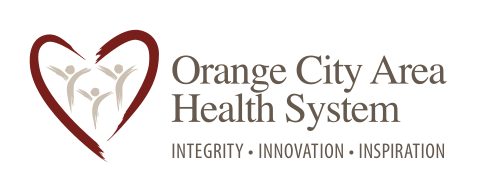-by Dr. Alan Laird, Chief Medical Officer
No this article is not about the virus. There is a lot of news and articles about that topic. That is not to say coronavirus is not important. Clearly, it has become so.
As we referred to earlier, the corona part of its name refers to the surrounding halo or crown-like spikes seen on the virus. Another object the corona refers to is the sun. It has a corona or halo, as well.
This is the time of year we’re likely to forget what damage the sun can do. We are reminded when we spend some time in the yard and noticed the next day our skin is a different color (or hot, sensitive and itchy if we are dark complexion).
Do not get me wrong. The sun and its corona do a lot of good things for us. We all probably know that getting sunshine can boost your vitamin D levels. It can also help with your mood, stress reduction, and help you sleep better.
But sunshine can also be damaging to our skin. Particularly the ultraviolet or UV portion of the sunlight that we cannot see. That is one of the reasons a person can still get sunburn on a cloudy day. The UV rays penetrate the outer layers of the skin to cause damage to the deeper layer where skin growth occurs. The damage then results in the swelling and pain associated with a sunburn.
A sunburn is something most all of us have experienced (even those with dark complexion). And while most burns cause some minor discomfort for 3 to 7 days, the susceptibility to sunburn is a marker to susceptibility to skin cancer and other sun damage to the skin. In other words, if you sunburn easily, you should consider yourself at higher risk of skin cancer. In general in our area the risk of sunburn is highest between 11 am and 3 pm in the summer months. Again, a fact most of us have learned the hard way. And it does appear that if you have suffered a sunburn, then they burned area has suffered an injury to the DNA inside the skin cells. Hence the reason for increased skin cancer and skin damage.
Besides having a fair complexion, other things that can cause you to burn more easily include: certain diseases — not just of the skin — but systemic diseases like lupus can make you more sun sensitive, as well as several different types of medication and some skin products.
Of course it is not just about skin cancer (although that is important) but sun damage leads to other types of skin problems. These can include: premature skin aging, wrinkles, dry skin, thinning of the skin, and an increase in those dark brown patches called solar lentigines. Rough scaly patches may also occur that are precancerous and called actinic keratosis or solar keratosis. Seek the advice of your healthcare provider if you notice concerning or changing skin spots.
So what can you do to avoid sunburn and the delayed affects from it in the years ahead?
Wear protective clothing. A long sleeve shirt provides more protection than a T-shirt. Long pants obviously cover more than shorts do. And don’t forget about those parts you can’t see – the back of your neck and the tops of your head and ears. A wide brim hat will cover those, where a baseball cap may not.
For those areas that are sun exposed and cannot be covered up, use a sunscreen. This is especially important for children and adolescents. Use sunscreen with SPF 30 or higher. Try to avoid the peak sun hours from 10 am to 4 pm. If you are sweating a lot or swimming, reapply frequently. For infants younger than 6 months, use lightweight clothing and sunscreen with SPF greater than or equal to 15 to small areas.
In the hopes we can all get outside more and as social distancing eventually becomes less important (we hope), let’s not forget to keep the other corona trouble maker (sunburn) at a distance so our skin stays healthy.
SAVE YOUR SKIN
May is Skin Cancer Detection and Prevention Month
Did you know … Dr. Mark Turek offers dermatological evaluations and procedures for a variety of conditions, right here in our clinic, close to home. Utilizing dermoscopy – a method of detection for pre-cancerous or cancerous lesions – allows Dr. Turek to determine if a biopsy is needed. He can perform biopsies and excisions of a variety of skin lesions. Call our medical clinic at 712-737-2000 for an appointment.
